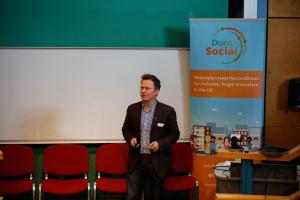You are here
- Home
- Moral Economies, Economic Moralities
Moral Economies, Economic Moralities
29 July 2016

The 2016 Society for the Advancement of Socio-Economics (SASE) conference, Moral Economies, Economic Moralities, hosted by the University of California, Berkeley in June, explored the relationship between economy and morality and the extent to which many political conflicts may be understood in terms of the hiatus between them.
Because of its nature as a potential tool for both industrial and social development, the pharmaceutical sector was of particular interest and was explored in the session Political Economy of the Pharmaceutical Sector in India, Brazil, South Africa and Kenya. The contributors, who included two IKD members, discussed questions such as why a state capable of triggering a successful pharmaceutical industry fails in delivering the products to its population, whether rent seeking can be avoided, and the effect of international regulations.
Although the role of industry associations in shaping policy and regulation through lobbying is well established in the academic literature, in most cases it has negative connotations connected to rent seeking and the pursuit of industrial elites' interests. In Industry Associations and the Politics of Making Medicines in South Africa, however, Professor Theo Papaioannou, deputy director of IKD, argued that in South Africa particular historical trajectories and a lack of institutional capacities is shifting associations towards a new political approach that emphasises partnering with government and civil society in the pursuit of broader economic and development aims. Meanwhile, in Healthy Industries and Unhealthy Populations: Lessons from Indian Problem-Solving, Visiting Professor Smita Srinivas clarified some aspects of the vital development difference between access in principle and access in practice.
In July, Theo also delivered a keynote speech entitled Enabling Inclusion through Innovation at a conference jointly organised by Doing Social and the Cambridge Judge Business School at the University of Cambridge.
The conference, Disrupting Social Innovation: Pursuing Inclusive Innovation through Universities, explored how inclusive innovation could be developed to address adversity and disadvantage in the UK, focusing on the important role that universities play within this and arguing that if issues of poverty, social exclusion and inequality are to be solved, more than the token involvement of people from disadvantaged groups is needed.
Read the full Industry Associations and the Politics of Making Medicines in South Africa paper, or view the PowerPoint presentation.
View PowerPoint presentation of Theo's Doing Social conference keynote address: Enabling Inclusion through Innovation.
Share this page:
Monthly Archive
- March 2024 (1)
- November 2023 (1)
- February 2023 (1)
- January 2023 (1)
- November 2022 (1)
- October 2022 (1)
Contact us
To find out more about our work, or to discuss a potential project, please contact:
International Development Research Office
Faculty of Arts and Social Sciences
The Open University
Walton Hall
Milton Keynes
MK7 6AA
United Kingdom
T: +44 (0)1908 858502
E: international-development-research@open.ac.uk
.jpg)